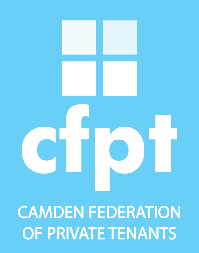4in10 Newsletter 25.11.2021
Read our latest newsletter by clicking here.
To receive the newsletter fortnightly to your inbox please send us an email.
Spotlight Interview with Voices of Hope
4in10 Member, Voices of Hope, share their work.
How are you helping to tackle child poverty in London?
Voices of Hope was established to help restore and rebuild hope in individuals, improving physical and mental health through community based projects. We work with groups across our community including families and individuals at risk of food insecurity, women who have experienced domestic violence/abuse and those with complex physical and or mental health issues. VoH also run a community choir and an innovative breathing support service.
Our BRITE (Building Resilience In Today’s Environment) Box project is a weekly recipe meal kit containing all the ingredients and a step by step, child friendly, illustrated recipe guide to resource and enable families to enjoy preparing and eating a healthy meal. We work closely with the Local Authority, Voluntary Sector and schools to reach families who will benefit most from engaging with the project and each family joins BRITE Box for a school year, receiving a new recipe meal kit every Friday.
Beyond the need to help children in immediate food poverty through providing a weekly balanced family meal at no cost, BRITE Box also addresses the impact of food scarcity on children through increasing skills, confidence and enjoyment in trying new foods and cooking from scratch – a life skill which can have a long term impact on physical, emotional and mental health and wellbeing.
We have also set up The Good Food Co-Op, a not for profit spray free, fresh fruit and vegetable box scheme, with the aim of ‘making healthy, fresh produce accessible to all’. Every box purchased by customers allows us to offer heavily subsidised boxes to referral customers, with community cooking events and courses planned for 2022.
Share with our members something positive about your organisation’s achievement or service.
BRITE Box has grown from 40 boxes a week in May 2020 to 450 boxes delivered to families each week across Kingston, Richmond, Southwark and Elmbridge. We have worked very closely with Local Authorities, schools, businesses, volunteers and VCS partners to create a truly community led project. However, our main achievement is the engagement and feedback we have received from families and schools taking part in BRITE Box.
“It helped me out when I was struggling and shows how cheap it can actually be to buy and make food from scratch”
“It was amazing, I learned new recipes and it created a great task for me and the kids to do together, a weekly treat, it gave the kids something to look forward to”
“I haven’t seen a project so well engaged with and so embraced by staff, children and adults. It is particularly impressive how enthusiastic the children have been through and how engaged they have remained. the collaboration of adults engaging with and talking to the children has been fantastic. It has built confidence, communication and self-esteem”. (School Head)
What can other network members learn from you or find out more about through you?
Effective partnership and working across the statutory, VCS and private sectors has been vital to the continued development and funding of BRITE Box. We place a high value on working relationally – listening, learning and sharing experiences.
What would most help you achieve your goals?
In order to allow more families to take part in BRITE Box we are keen to develop diversified sustainable funding streams and partnerships with like-minded community partners in other areas. We predominately serve Kingston, Richmond, Southwark and Elmbridge but are keen to work with others to serve other parts of London as we grow.
Why did you join 4in10? What do you enjoy about being part of the 4in10 network?
4in10 provides a fantastic opportunity to be part of a network to learn, share insights and work together with a collective voice to reduce inequality across London.
For more on VOH go to https://www.voh.org.uk/index.html and if you are interested in partnering with us please get in touch.
4in10 Newsletter 11.11.2021
4in10 Newsletter with events, training, news, data, funding, history and much more. For this issue click here.
Camden Federation of Tenants Briefing for VCS's
Background
There is a greater focus on the private rented sector (PRS) than ever before, but because of the media’s excessive interest in so-called “Generation Rent” there is a misconception that most people who live in it are mostly students and highly paid young professionals.
While a significant number of both of these groups rent privately across London, it would be wrong to assume that all of them are well off. Increasingly, the PRS is now made up of a mixture of household types and recent research carried out by the University of York* identified these six as being the most “vulnerable to harm” in the PRS.
1. With dependent children
2. With someone registered as disabled or who is unable to work due to a long-term sickness or
disability
3. With someone aged 65 or older
4. In receipt of a means tested benefit or tax credit
5. On a low-income but not receiving any means tested benefits or tax credits
6. Headed by a recent overseas migrant
*Vulnerability amongst Low-Income Households in the Private Rented Sector in England (David Rhodes and Julie Rugg, University of York Centre for Housing Policy, 2018)
The impact of Covid-19
According to the Greater London Authority’s “Housing in London 2020” report:
“The onset of the Coronavirus pandemic highlighted and exacerbated existing inequalities in London's housing market, including stark differences in the prevalence of housing problems between Londoners of different ethnicities.” The report also highlighted private renters increased financial vulnerability compared to homeowners, and the lack of access to private or shared gardens.
We would also add to this the difficulties of social distancing in shared housing arrangements, particularly in HMO (Houses in multiple occupation) type accommodation, the behaviour of landlords/agents, and because of a power imbalance, the inability of renters to challenge or influence this.
Some private rented sector facts
1. In 2019, 29% of London’s households were private renters and 23% were social renters, making it now the smallest housing tenure in the city. This trend will continue as the housing crisis only gets worse
2. A bigger proportion of homes rented privately (35%) have children living in them than in the social rented sector
3. Average private rents in London have risen by 43% since 2005, and in 2015/16 around a quarter of privately renting households in the capital spent over half of their income on rent.
4. The average rent for a 1 bedroom flat in London is more than a 3 bedroom flat anywhere else in England
Tenants or renters ?
For many years, any discussion about the private rented sector was on issues solely relating to tenants, but recently this has changed to focus more on what are now called “renters”. This is largely due to the much broader range of terms that people rent properties under e.g. a licence rather than a tenancy for a lodger or property guardian, a holiday let or lettings club arrangement or no formal agreement at all. It should also be pointed out that these sorts of practices tend to proliferate in the more marginal (and often hidden) parts of the sector, where the households more vulnerable to harm tend to live.
In what ways are social renters and private renters different ?
Private renters do not have a designated housing officer that can inform or signpost them to the appropriate local organisations, services and projects
Private renters do not live in clearly identifiable estates or blocks (unless they are living in an ex-Council property) and are much more dispersed across an area than social renters
Private renters are unlikely to be aware of the tenant halls on Council estates and the events/activities that take place in some of them
Research has shown that private renters don’t tend to do the things that more settled parts of the community do such as register to vote, sign up to doctors and dentists etc
What kind of issues are private renters currently facing ?
Poverty/fuel poverty – Due mainly to unaffordable rents, Covid-19, and energy inefficient homes.
This can also be due to the inability to choose their own energy supplier, benefit changes and a reluctance to claim benefits amongst certain groups e.g. older renters
Isolation/loneliness – Is also a particular problem amongst older renters and is made worse by the often individualised nature of renting in the PRS
Physical/mental health issues – Can be pre-existing or new conditions that are either made worse or caused by poor a relationship with landlords/agents and the lack of adapted homes in the PRS
Digital exclusion – Is a particular issue for those who cannot afford a smart phone or broadband and/or don’t understand how to get online
Lack of knowledge of rights – Is an ongoing problem amongst most renters, but can be a particular problem for certain groups e.g. those from other countries who are not familiar with how “the system works” here
What does this mean for the voluntary and community sector in London ?
We believe that the rapidly changing nature of who lives in the private rented sector has implications for voluntary and community sector organisations across the capital when it comes to both running and promoting existing projects and services, and planning new ones. It should also be noted that the disadvantaged households described here are those that local groups/organisations usually focus on.
How should the voluntary and community sector respond to this ?
We believe that when planning, running and promoting projects and services it is helpful to:
Think about housing tenure and understand the range of issues that private renters currently face
Understand the differences between social and private renters and not just view them as generic
“residents”
Understand how they find out about, access (or not, as is often the case) local projects and services
Produced by: Camden Federation of Private Tenants (CFPT)
Tel: 020 7383 0151 Email: admin@cfpt.org.uk Website: www.cfpt.org.uk



